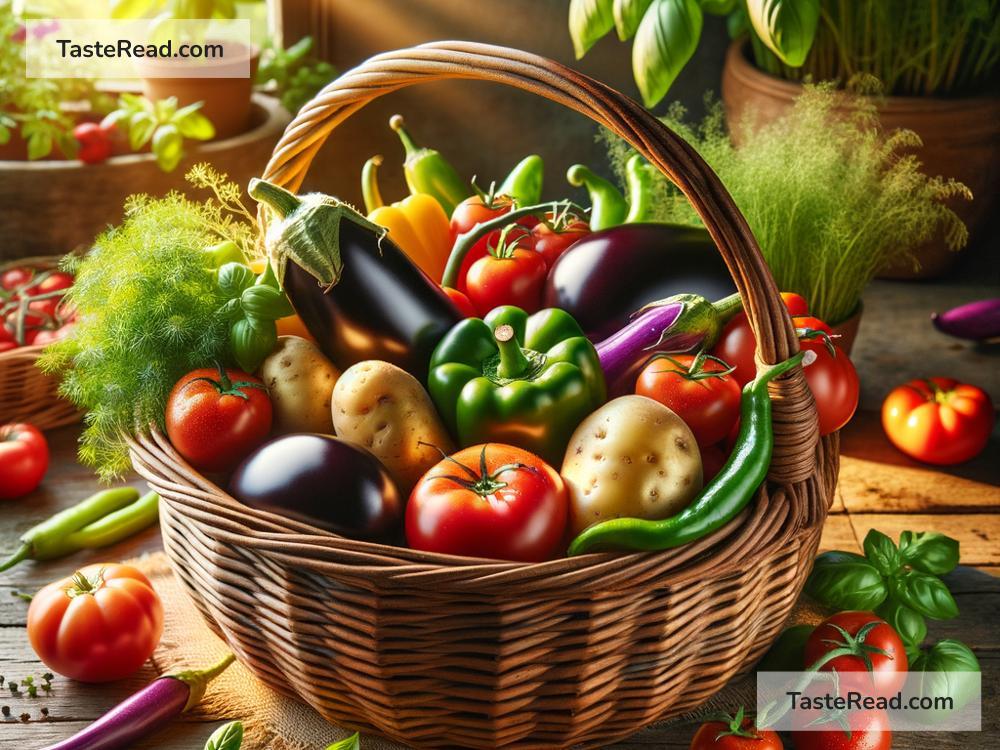The Impact of Nightshade Vegetables on Health
Nightshade vegetables have been gaining attention in recent years, sparking debates about their impact on health. While many people enjoy these vegetables as part of their diet, others question whether they might be harmful, especially for people with certain health conditions. In this blog, we will explore what nightshade vegetables are, their potential benefits, and their possible downsides in simple terms.
What Are Nightshade Vegetables?
Nightshade vegetables belong to a family of plants known as Solanaceae. There are hundreds of plants in this family, but only a few are commonly eaten as food. Well-known members of the nightshade family include:
- Tomatoes
- Potatoes
- Eggplants (aubergines)
- Peppers (including bell peppers, chili peppers, and paprika)
These vegetables are widely consumed around the world and are often praised for their flavor and versatility in cooking. They’re key ingredients in many dishes, from mashed potatoes to tomato-based pasta sauces and spicy curries.
Nutritional Benefits of Nightshade Vegetables
Nightshade vegetables offer a lot of nutritional value. They provide essential vitamins, minerals, and antioxidants that play an important role in keeping us healthy. For example:
-
Rich in Vitamins: Tomatoes are packed with vitamin C and vitamin A, which help boost the immune system and keep your skin healthy. Bell peppers are also high in vitamin C.
-
Antioxidants: These vegetables contain antioxidants like lycopene (found in tomatoes) and chlorogenic acid (found in peppers and potatoes). Antioxidants help fight free radicals in the body, which can reduce the risk of chronic diseases like heart disease and cancer.
-
Dietary Fiber: Fiber is important for digestion and can help prevent constipation. Nightshades like eggplants and potatoes provide a good amount of fiber to support gut health.
-
Low in Calories: Many nightshade vegetables, such as tomatoes and peppers, are naturally low in calories, making them a great choice for weight management.
There’s little doubt that these vegetables contain nutrients essential for good health. They are nutrient-dense and can be part of a balanced diet.
Why Are Nightshade Vegetables Controversial?
While nightshade vegetables are nutritious, some people believe they might have negative effects on health. This concern is mainly linked to a natural compound found in nightshades called solanine. Solanine is a chemical that plants produce to protect themselves from pests and diseases.
Solanine is found in small amounts in edible nightshade vegetables, especially in potato skins, green potatoes, and the leaves of the plants (which are not meant to be eaten). For most people, the amount of solanine in everyday meals is harmless. However, some individuals may be more sensitive to it.
How Can Nightshade Vegetables Affect Certain People?
Certain groups of people might feel discomfort after eating nightshade vegetables.
-
Autoimmune Conditions: People with autoimmune diseases, such as rheumatoid arthritis or lupus, sometimes claim that nightshades worsen their symptoms. This is because solanine is thought to increase inflammation in sensitive individuals. However, scientific evidence on this connection is limited, and reactions can vary from person to person.
-
Joint Pain and Arthritis: Some people who suffer from joint pain or arthritis have reported feeling better when they avoid nightshade vegetables. It’s believed that compounds in these vegetables, like solanine, might trigger pain or inflammation in some individuals. However, more research is needed to confirm this theory.
-
Food Sensitivities: Just like some people are allergic to nuts or dairy, others might have a mild sensitivity to nightshade vegetables. This can lead to symptoms like stomach upset, bloating, or skin irritation after eating them.
Should You Avoid Nightshade Vegetables?
For the majority of people, nightshade vegetables are perfectly safe to eat. They are nutritious, widely available, and play a big role in many cuisines. If you don’t experience any adverse reactions, there’s no need to avoid them.
However, if you suspect that nightshades might be affecting your health, there are steps you can take:
-
Elimination Diet: Try removing nightshades from your diet for a few weeks and see if your symptoms improve. Then, slowly reintroduce them to determine if they cause any reaction.
-
Cook Your Vegetables: Cooking nightshade vegetables can reduce solanine levels. For example, boiling or roasting potatoes can lower their solanine content.
-
Consult a Doctor or Dietitian: If you experience issues like joint pain or digestive discomfort, it’s always a good idea to seek professional advice before making any major diet changes.
Conclusion
Nightshade vegetables, such as tomatoes, potatoes, eggplants, and peppers, are nutritious foods that provide essential vitamins, minerals, antioxidants, and fiber. For most people, they are delicious and healthy additions to a balanced diet.
However, some individuals—especially those with autoimmune conditions or sensitivities—might find these vegetables problematic. While the science on this topic is still unclear, listening to your body and paying attention to any health issues is important. If you suspect nightshades are causing problems for you, try experimenting with your diet or consulting a healthcare professional.
In the end, as with most things in life, moderation is key. For the majority of people, nightshade vegetables can be enjoyed without worry. Want to add more color and flavor to your meals? Tomatoes, potatoes, eggplants, and peppers might be the perfect choice for your plate!


